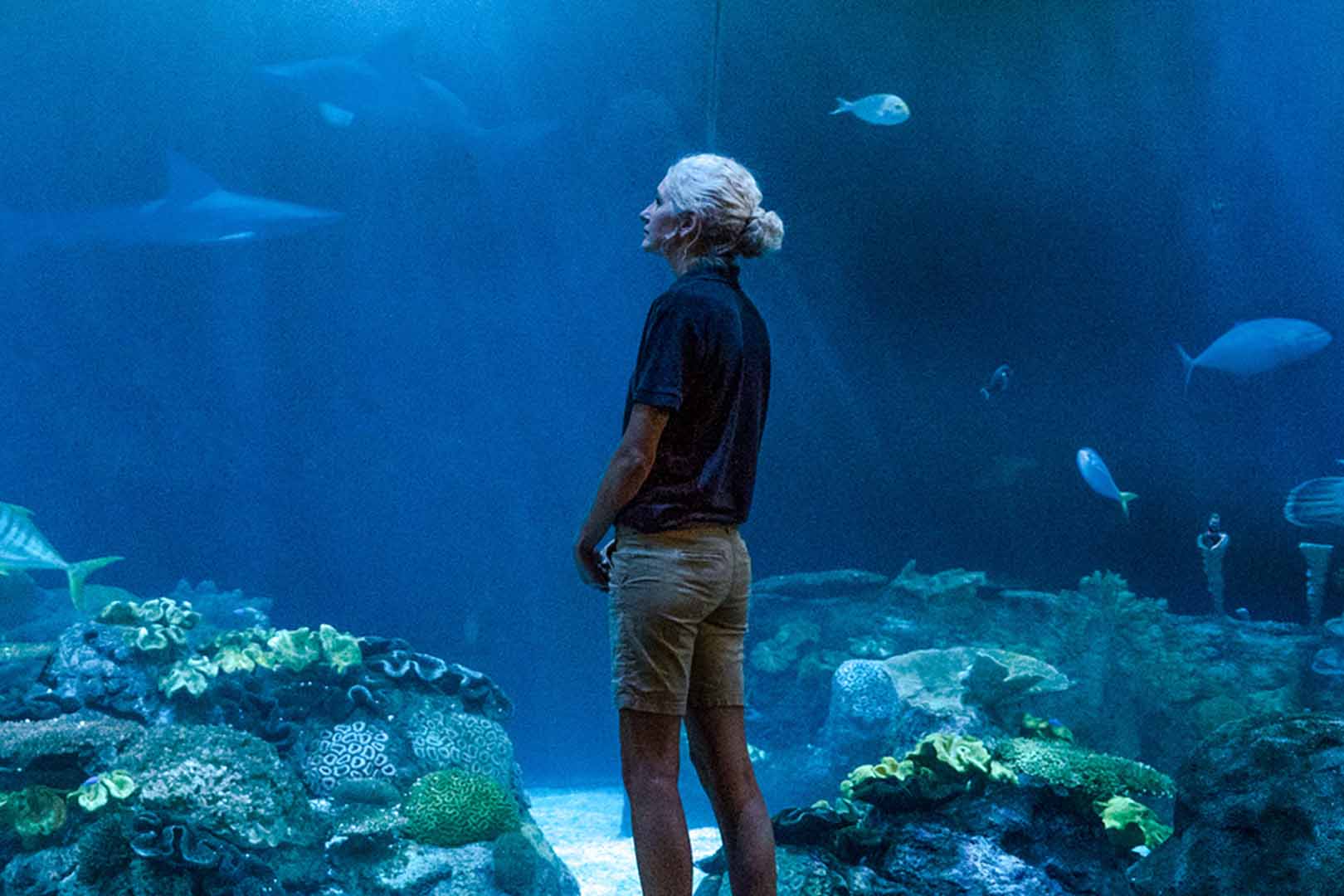

How It's Done:
NEON SIGNS
Grainger Everyday Heroes: Aquarist
By Grainger Editorial Staff 5/15/20
Meet Heather Urbaniak, a Senior Aquarist at the Shedd Aquarium in Chicago. She wants people to know that a human is a much scarier animal than a shark. Follow Heather as she gives an inside look at the world of marine life and sharks.
There's less than 10 fatalities every year from shark attacks and humans kill 100 million of them every year. I always like to remind people that a human is a much scarier animal than a shark. In the grand scheme of things [sharks have] been around for millions of years, I'd like to make sure that they'll be around for a million more.
My name is Heather Urbaniak. I'm a Senior Aquarist here at the Shedd Aquarium in Chicago. I start at about 6:30 in the morning every day. When we get here, we start off doing rounds. Rounds involves checking temperature and salinity. We also collect water samples early in the morning. A super important part of taking care of aquatic critters is making sure that the environment they're living in is doing good, which is why we take water samples. After morning rounds, we cut up food for everybody and feed it out. Each individual group is fed. They're trained to come up to the station to feed. They have a target that we place in the water, a visual cue and also an audio cue that we use as a clicker under the water. Just like you see the dolphins and the whales trained, we train our sharks. Feedings do take a while. We like doing it that way because it's organized.
They don't eat as much as a marine mammal or [similar mammals] because they're cold blooded. They don't have the metabolism of a mammal. [These sharks] are only getting fed three days a week, depending on the group. Some of them eat five days a week, some eat four [days per week], [while] others eat two days a week. Then [there's the] baby sharks, so they're growing. They have bigger metabolic needs because they put a lot of energy into growing.
They're fascinating, wonderful animals. [Being an aquarist], I feel like I need to educate people on [sharks] and also be their voice to let people know [what] they can do to help wild sharks and wild populations. I love working with animals. It was like, I didn't really choose sharks, sharks chose me.
![]()
The information contained in this article is intended for general information purposes only and is based on information available as of the initial date of publication. No representation is made that the information or references are complete or remain current. This article is not a substitute for review of current applicable government regulations, industry standards, or other standards specific to your business and/or activities and should not be construed as legal advice or opinion. Readers with specific questions should refer to the applicable standards or consult with an attorney.






